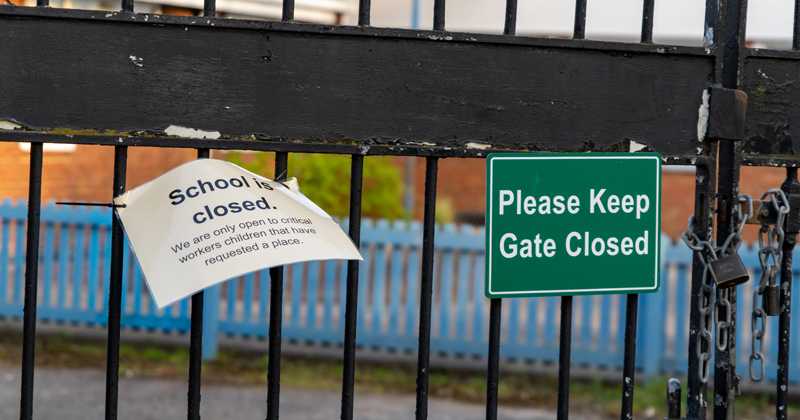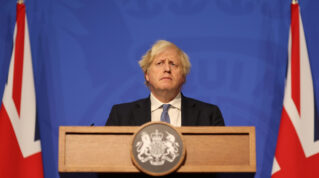The government lacked “leadership and determination” to get children back to school as lockdowns were lifted, Baroness Anne Longfield, the former children’s commissioner, has told the Covid inquiry.
Her remarks followed claims by Gavin Williamson, a former education secretary, that he was given just one day to plan for closing classrooms. Here’s a round-up of what the inquiry heard…
‘Discombobulating sea change’
In her opening remarks on Monday, Claire Dobbin KC said the decision to close schools on March 18 “had ramifications that are difficult to overstate”.
Evidence the Department for Education “didn’t start planning for this closure of schools until after March 16 is a cause for alarm”, she added.
The DfE said between January and March 2020, its contingency plans were “premised on the assumption that schools and other education settings would remain open”.
Because of the focus to keep schools open, the DfE said it did not prepare an impact assessment on closures.
Williamson, who will be questioned later, said this was because No 10 had not commissioned advice on such an assessment.
He said the government had a “discombobulating 24-hour sea change” in policy towards schools, which left one day of planning.
But in his evidence, Boris Johnson, the former prime minister, said he “took issue” with Williamson’s recall of events. He suggested that the DfE was “aware of the possibility” of school closures.
The inquiry also heard that Williamson felt the second closure in January 2021 was “not required”, but it was a “panicked decision made without children’s interests front and centre”.
Dobbins said it was “significant” that the two figures were disputing over any planning for “so seismic an event”.
‘Chaotic’ decision-making
Longfield, who gave evidence on Thursday, said the situation in government was “very fluid and somewhat chaotic”.

She met with the education secretary about once every six weeks, and the children’s minister every fortnight.
When asked how much she contributed to decision-making, she said: “It was very difficult to see where decisions were being made, and they certainly didn’t seem to be made primarily by those people that were talking to me.”
She was “not even sure there were discussions” over the potential impacts of school closures.
“It was quite chaotic, it wasn’t clear who had responsibility for planning for children – if anyone – nor what options were being considered, nor if any assessment should be made on the potential impacts on children.”
No ‘determination’
The former children’s commissioner said the government could have worked to open schools again in June 2020, but that it did not have “momentum to break the impasse” between teaching unions, schools and local authorities.
“It was in my view that it was the government’s responsibility to break through that impasse and to find a solution that meant that children could return to school as swiftly as possible…I don’t think that leadership or determination was in place”.
This led to a situation where “mistakes were made, children were overlooked, and there were mistakes and decisions that went against children’s best interests.”
Impacts on children
Figures from other children’s organisations set out the stark impacts of school closures.
Dr Carol Homden, from the children’s charity Coram Group, said the pandemic came at the “very moment children perhaps needed the greatest consistency and regularity of access to school because of the changes this generation was experiencing” with social media and technology.
Nuala Toman, from Disabled People’s Organisations, said the loss of in-person education for disabled pupils was “extremely detrimental”, while Kate Anstey, from Child Poverty Action Group, said pupils eligible for free school meals “significantly suffered” in lockdown.
Poorer families were “simply were not set up” to have their children work from home. Technological barriers made them feel “more and more isolated”.
Sammie McFarland, the co-founder of Long Covid Kids, said there was “no support [and] no understanding” from schools over the impact of the illness on children who could not attend school once lockdown was lifted.
The inquiry will question staff from Ofsted, NHS England and special schools next week.
















Your thoughts